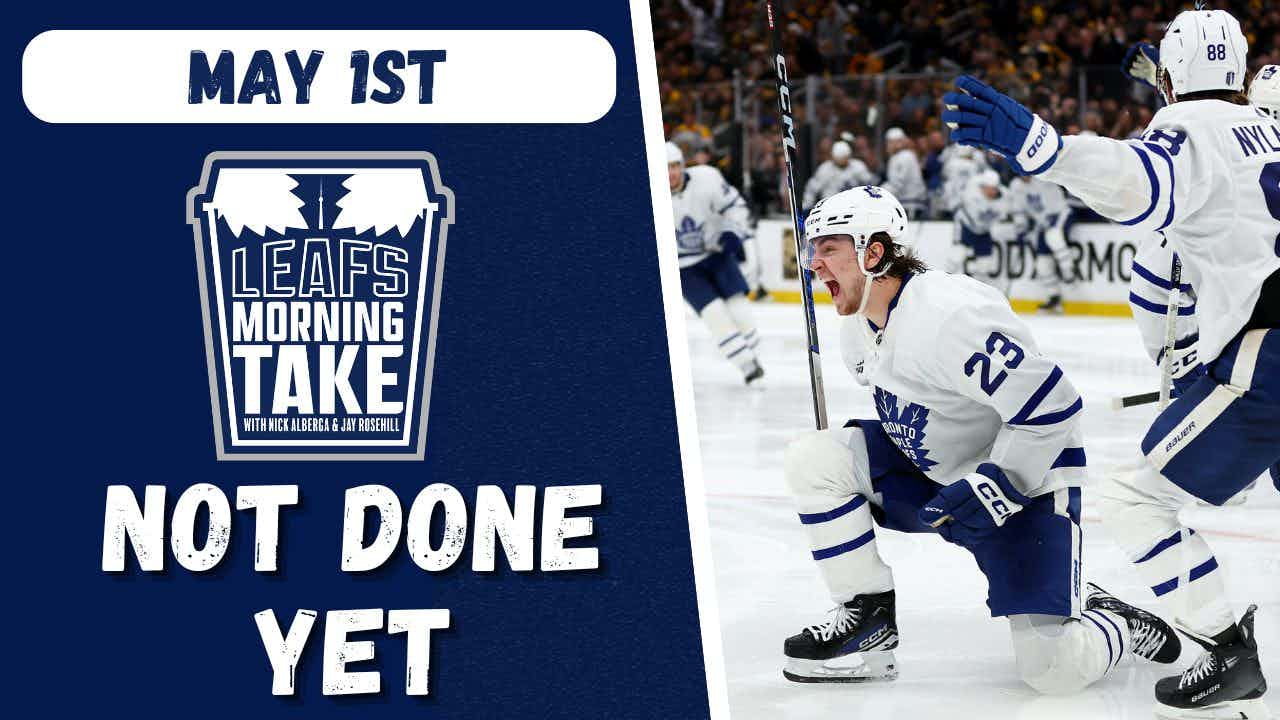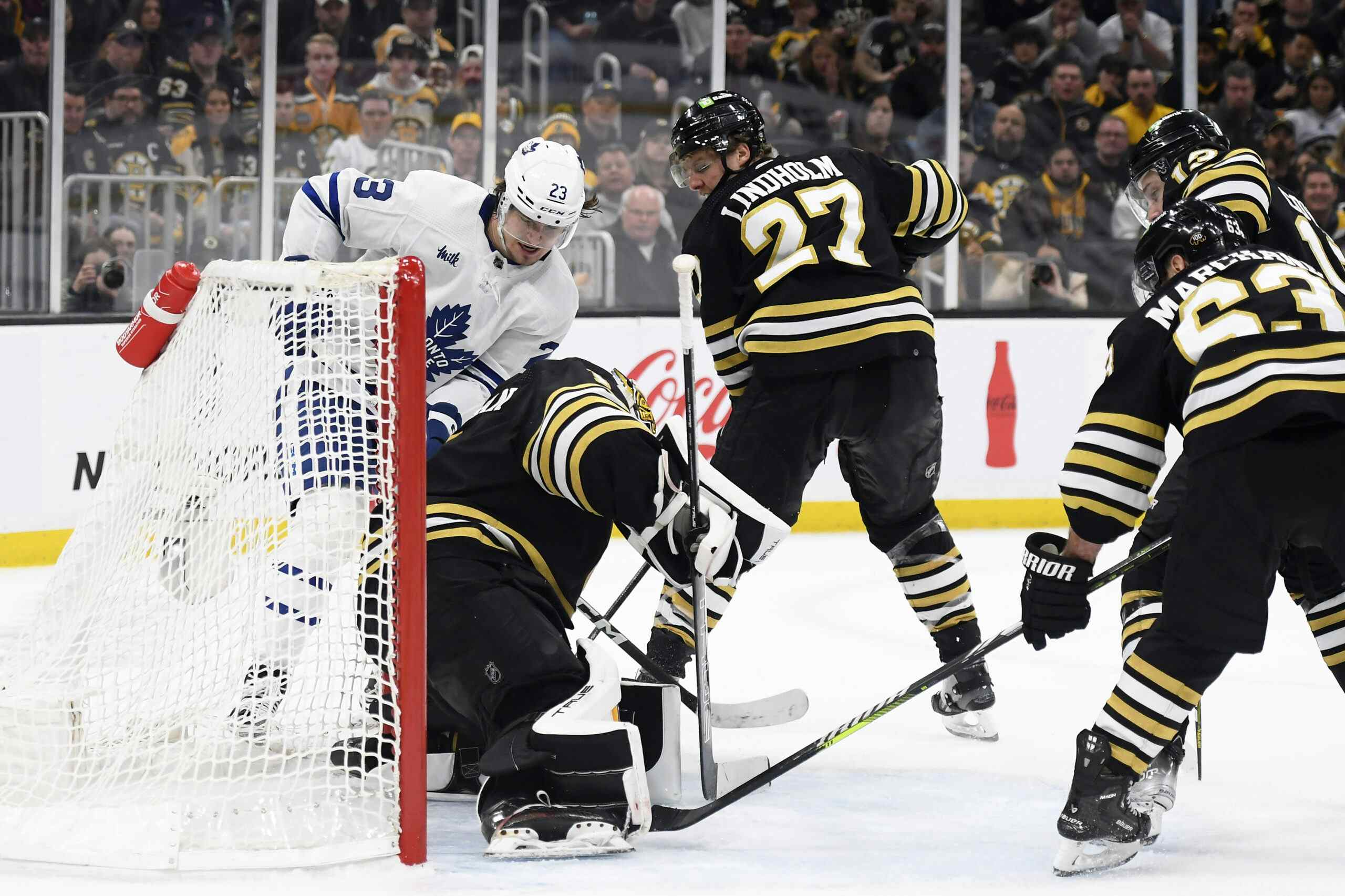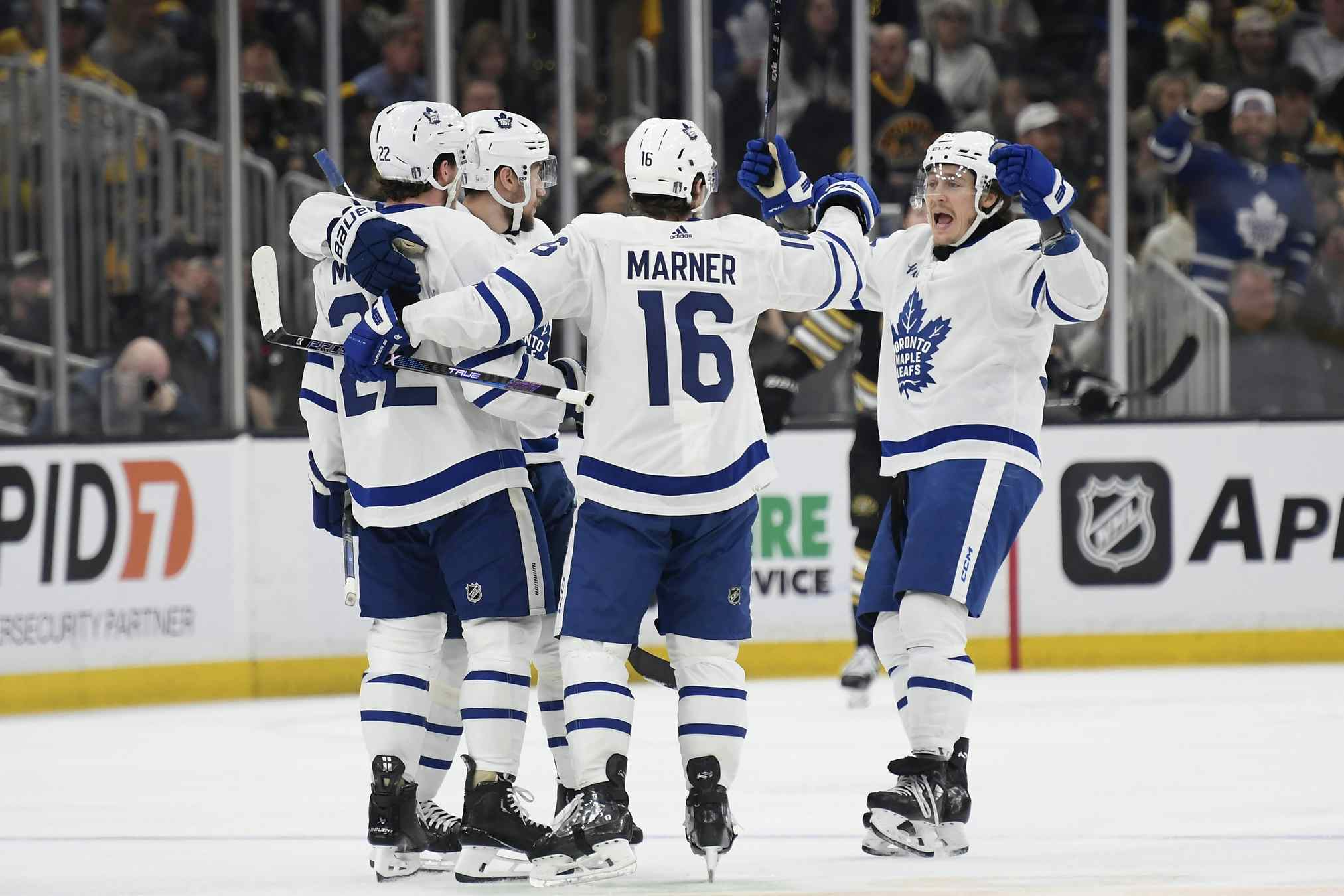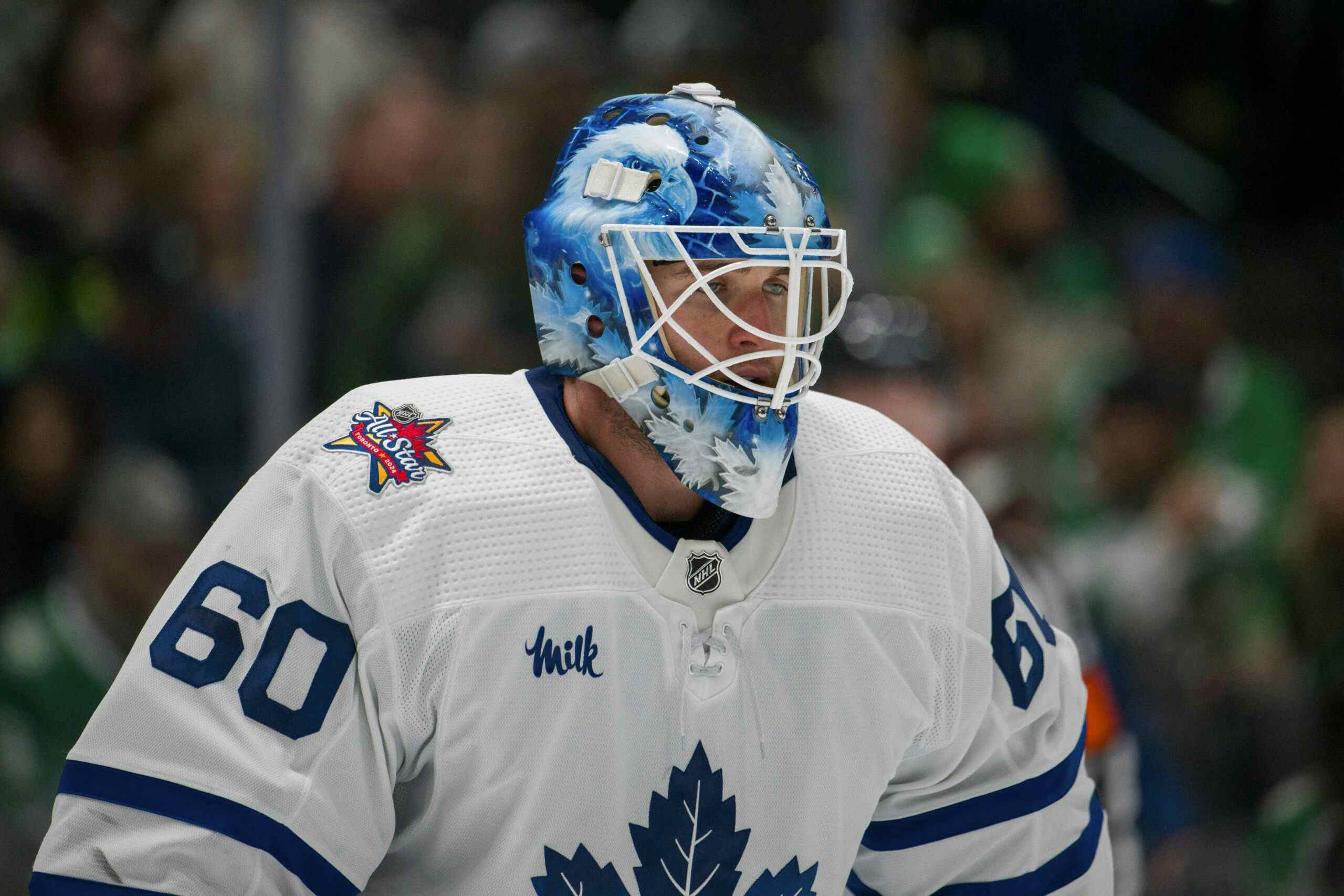Dubas speaks on what he looks at after a game, his staff, and more
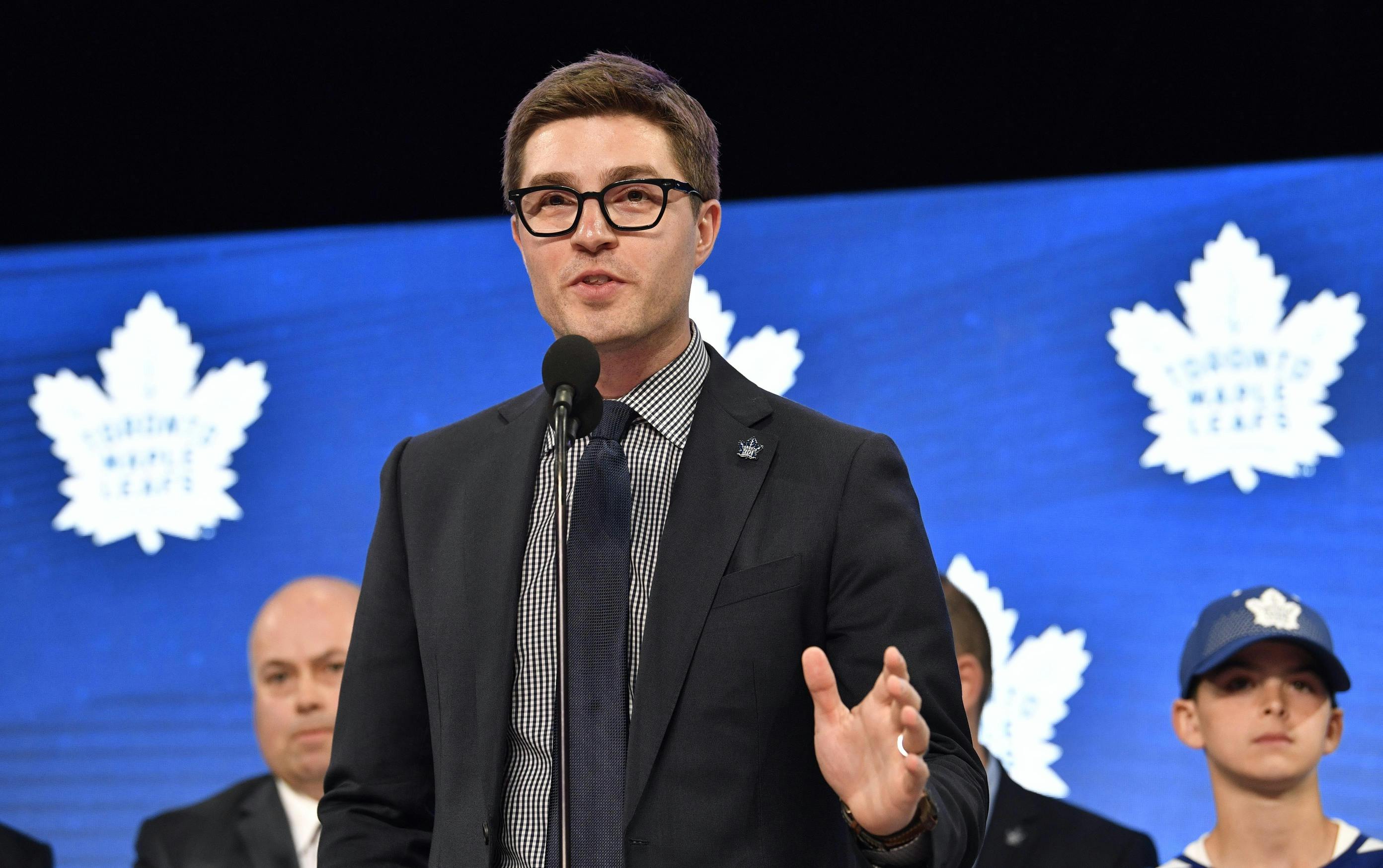
At an event held by the Empire Club of Canada, GM Kyle Dubas sat down with Raptors GM Bobby Webster and Elliotte Friedman to talk about a variety of topics surrounding the Leafs and their hockey operations.
To get a full grasp of what was discussed, here is a link to the video of their stream of the event.
The discussion went everywhere from what Dubas looks at directly after a game finished, to what he sees the future of data in hockey looking like. We were lucky enough to be in the room and get an in-person hearing on some of his thoughts on various topics.
On what he looks at after a game:
“As analysis has grown deeper and deeper in hockey and improved, now you’re starting to measure the quality of every shot and what it can do to your expected goals. So if you have a shot from a certain spot on the ice, what’s the percentage that that goes in? What are the other factors that are going into that? Then, how does that impact the expected goals that your team can expect to score that night? So there are all these various different things, but until we can get into a level where that sort of stuff is verified, having more of a sample size over time, and better verified.”
The conversation then moved towards what exactly the staff of the Leafs do on a day-to-day basis. Here Dubas is discussing the Leafs medical department and how they are involved with players:
“The amount of data that they collect from the players every single day, it’s been a major help at making sure our players are operating at their peak performance. And we’re doing everything that we can, to take all the data and guide our practice philosophies and training philosophies to make sure we’re not overstressing them. So for Wednesday night when we’re playing Washington, that they’re at their optimal level to have success.”
After that, Elliotte Friedman asked about resting certain star players – especially with the Kawhi Leonard situation in mind. Dubas went on to say this about the Leafs situation and hockey in general:
“It’s kind of become conventional wisdom among goaltenders but it’s not yet there among forwards and defenceman. I think as it becomes more pervasive in other sports, whether that’s innings limited in baseball among pitchers, whether that’s the way basketball teams are handling their situations with regards to back-to-back games and resting their star players. I think it will certainly become more pervasive in hockey.”
Bobby Webster brought up the point that when teams rest players or are in the second half of a back-to-back, their odds of winning in the gambling realm, decrease. Dubas then brought up an interesting point of internal odds and how they can schedule out the entire season and where they should end up.
“On Bobby’s point, in hockey, if you look at points per 82 games played and you look at if both teams are fresh. So last night both teams were fresh, we played Arizona, they didn’t play the night before and we didn’t play the night before.
The points per 82 games you can expect in those games are equal, but when you go into situations like how we’ll be in a back-to-back situation on the weekend. We’re playing Detroit in Detroit on Friday and be back home to play against Pittsburgh. At the beginning of the year, our data people produced the expected effect of our schedule on our points. So we started the season, ‘so we’re minus-2 and Tampa Bay are plus-two’ that’s a four-point gap right off the bat. We’re not in that position this year, I’m just using it as a hypothetical.”
Extremely interesting that they can map out the season like that and just by the effect of what their schedule will be, see how other teams will perform around them.
Next, Dubas was asked a question about the next major thing in data that will have an effect on the league:
“I think it’s going to be a number of different metrics that are verifiable and certainly able to be reproduced based off on the player tracking data that will come into the league. Right now a lot of the available information is either manually tracked or it’s digitally tracked and then manually confirmed, so there are no real formal tracking programs like they have in the NBA.”
Player tracking has been forecasted as the next big thing, certainly.
One specific quote about John Tavares signing with the Leafs and the process behind that was extremely interesting. Dubas stated:
“You want to make sure when you’re bringing someone into the organization, it’s one thing to go and find a superstar talent but making sure they fit within the fabric of the company or of the program, was very important to us.”
Fits Babcock’s mantra of “having good people before good hockey players” well. The idea of Tavares fitting in with this locker room and meshing well with the team both on and off the ice seemed to be extremely important to the Leafs front office.
The final topic was how to bring some traditional thinking people up-to-speed in some analytically-minded statistics and way of thinking.
“I think I’ve been branded as an analytics person, but I think one of the major advantages to the question you asked is when I grew up, I grew up in scouting and player development. Going back to Sault Ste. Marie as the GM when I was 25, it’s a team in a smaller market relative to the league, the revenue relative to the rest of the league is small and the expenses are far greater than most teams in the league.
We didn’t have the resources that were really going to be necessary to compete, with a massive scouting staff or expensive and innovative ventures. We couldn’t be wrong as much as others because we didn’t have the resources to make up for our mistakes, by just spending more or signing more players and giving them lucrative education packages. We were very constrained with what we could do.”
Definitely reeks of the Moneyball Oakland A’s analogy (in a good way), but Dubas is right in him being branded as just an analytics person. He has been in rinks his whole life and probably even more than some of the other traditional minds within hockey today.
To get insight like this directly from the mouth of the Leafs General Manager Kyle Dubas can be important in understanding some of his decisions. Especially when it comes to how much information that they have behind the scenes, it can certainly help when it comes to a player’s health and some more in-depth performance data.
The Empire Club of Canada did a fantastic job hosting the event and we thank them for inviting us to come and listen to Dubas speak.
Recent articles from Thomas Williams

